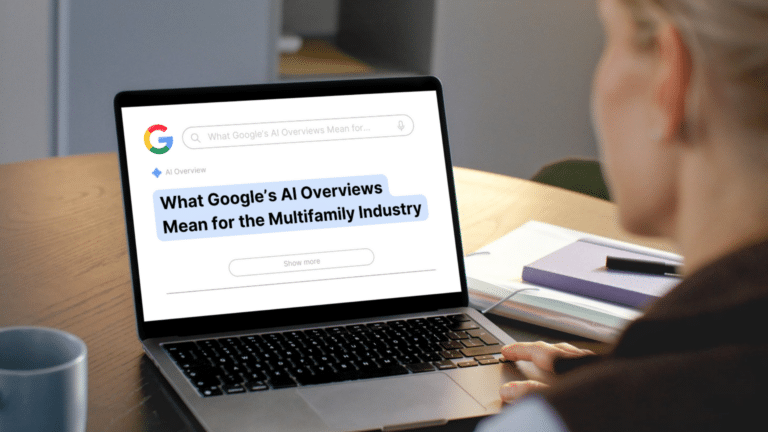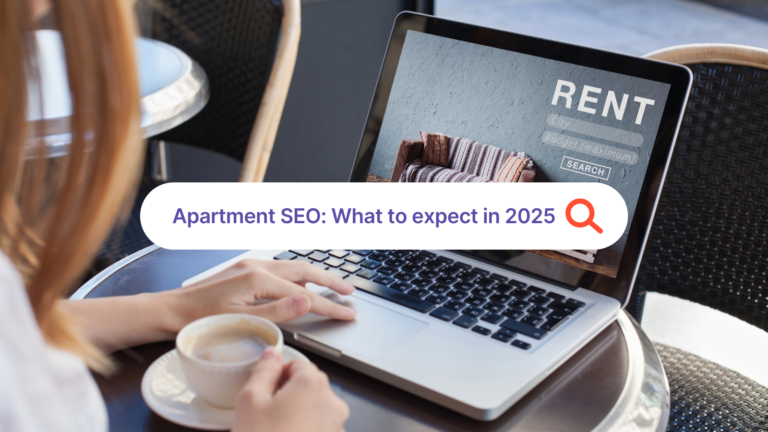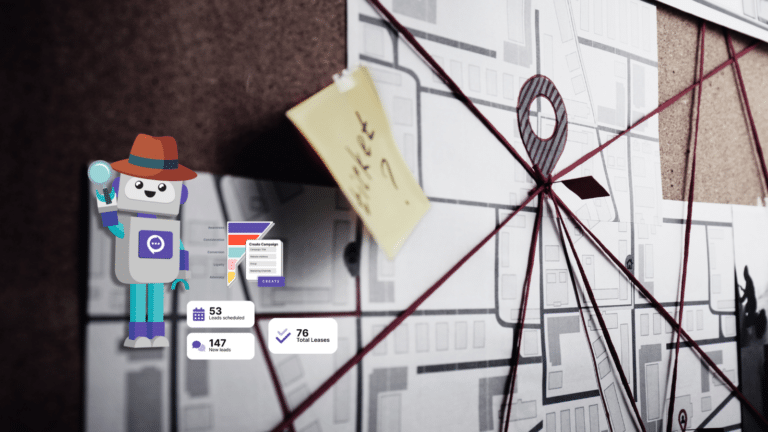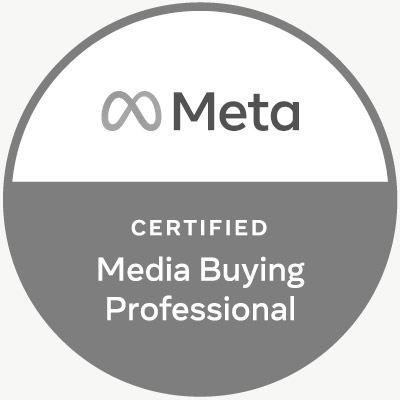Multifamily is competitive. Even if your customer service shines, your community amenities rock, and your location can’t be beat, it can still be a challenge to stand out in the sea of options that prospects have in front of them.
The vast majority of prospects start their apartment search online, and that’s become even more true since the COVID-19 pandemic began last year. In some cases, the entire leasing process, including apartment tours, have gone virtual.
This shift to digital means apartment SEO is more important than ever. It can help your community rank high on Google, which means more prospects will find your community and, in turn, you’ll be able to generate more leases.
In this post, we’ll take a look at apartment SEO strategies and how to set your community’s site up for long-term success.
Apartment SEO: On-Page vs. Off-Page
Apartment SEO involves strategies that make it easier for search engines to crawl and index your apartment website and serve it up to prospects who are searching for their next apartment. As a result, you’ll get more traffic.
SEO generally falls into two buckets: On-page SEO and off-page SEO. On-page SEO refers to the adjustments made directly to a web page to help it rank higher, including adding keywords and creating high-quality content.
Off-page SEO includes practices that take place outside of your website that influence rankings, such as social media and reviews. In this post, we’ll go over on-page SEO.
How to Rank High on Google Using On-Page Apartment SEO
Google takes more than 200 factors into account when deciding where a website should appear in search engine results. Google’s algorithms change frequently, but there are several important ranking factors that you should be aware of: content quality, how long a visitor spends on your site, keyword selection, and page load time.
In this section, we’ll go over these factors and explain actions you can take that can help to make your apartment website more SEO-friendly.
High-quality content
Yes, content is still king, especially to Google. If you offer fresh, original and helpful content, Google will rank your website higher on its search engine results page. For apartment websites, the best way to do this is to launch an apartment website blog.
How to do it: Google values content that’s new and unique. If your content is too similar to other sites, it can damage your SEO. So what should you blog about? A wide variety of topics would work for an apartment website blog. Here are some ideas:
- Tips on storage solutions for apartments
- The best places to hike nearby
- Weekend DIY projects that could be completed in an apartment
- Drink and snack ideas for a virtual happy hour over Zoom
- The best takeout or delivery options in your area
A smart way to capture high-volume traffic is to provide content people are looking for. Using Google Trends, you can see the topics people are searching for on any given day. If you’re able to come up with a blog post around a trending topic, you might be able to jump on that wave of traffic.
Session duration
Another factor Google considers when deciding where your apartment website should rank is the average length of time users spend on your site, also known as session duration. The goal is to keep visitors engaged with your website content so they’re spending longer on your site, which tells Google that your content is valuable. The ideal average for time spent on a page varies, but generally if you can keep users on your site for two to three minutes, you’re golden.
How to do it: The key, again, is content, but rather than blog posts, think interactive features. Some examples:
- Apartment virtual tours
- Videos
- Apartment 3D renderings
- Resident testimonials
- Image galleries
- Live chat capability
Keywords
Keywords help search engines understand what each page of your site is all about. When you assign relevant keywords to your pages, Google may include your site in its search results when a user searches for that word. If you’re able to rank high for specific keywords, your apartment website can get more traffic.
How to do it: Create a spreadsheet listing each page of your apartment website. For each page, come up with a few keywords that seem relevant, then start your keyword research. There are numerous free keyword research tools, like Google Keyword Planner, which will tell you how much competition you have for each keyword as well as the search volume. The goal is to select keywords that have low competition and a high search volume.
Once you’ve selected your keywords, the next step is to go to each page of your site and work them in, which is known as keyword optimization. To make sure your apartment website is optimized for keywords, you’ll want to make sure they appear in the following places on your pages:
- URL
- Meta description
- TItle of the page
- Headings
- Image alt text
- Body of the text
Page load time
If your apartment website loads slowly, meaning longer than two seconds, it sends a signal to Google that visitors most likely won’t have a good user experience, so it will bump your site down in the rankings. Pages with longer load times tend to have higher bounce rates and a lower average time spent on a page. You can test your page speed with a free tool like Google’s PageSpeed Insights, and if you have room for improvement, there are some steps you can take to fix it.
How to do it: There are numerous tweaks you can make to your apartment website to increase the page load time, and the ones we’re going to focus on are ones that a layperson can do without any web developer experience.
- Compress your images. You can find many free tools that will do this for you automatically. Compressing images will reduce their size without losing visual quality.
- Clean up your dashboard. If you use WordPress, your dashboard can get cluttered with deactivated plugins, saved drafts, and other unnecessary items that can slow down your site. Go through your dashboard and address these things, or use a plugin that deletes the clutter.
- Fix broken links. Not only are broken links a drain on bandwidth, they’ll also make users leave your site. Google Search Console can help you identify any broken links so you can fix them.
- Look at your web host. The hosting provider you choose will have a major influence on your page speeds. Going with a lower cost web host often means you’re sharing resources with multiple other sites on an overloaded server, so take that into consideration.
- Cache your pages. Caching stores copies of your site’s files, so when a visitor returns to your site, the browser doesn’t need to reload everything from scratch. There are numerous WordPress plugins that can cache your pages for you.
Conclusion
In order to be successful, an apartment community needs to attract people who want to live there. With some basic knowledge of on-page apartment SEO, you can make adjustments to your apartment website that will make your site more visible to search engines, which will help you generate more qualified apartment leads, conversions, and ultimately signed leases. If you need help with your apartment SEO, contact Respage!






